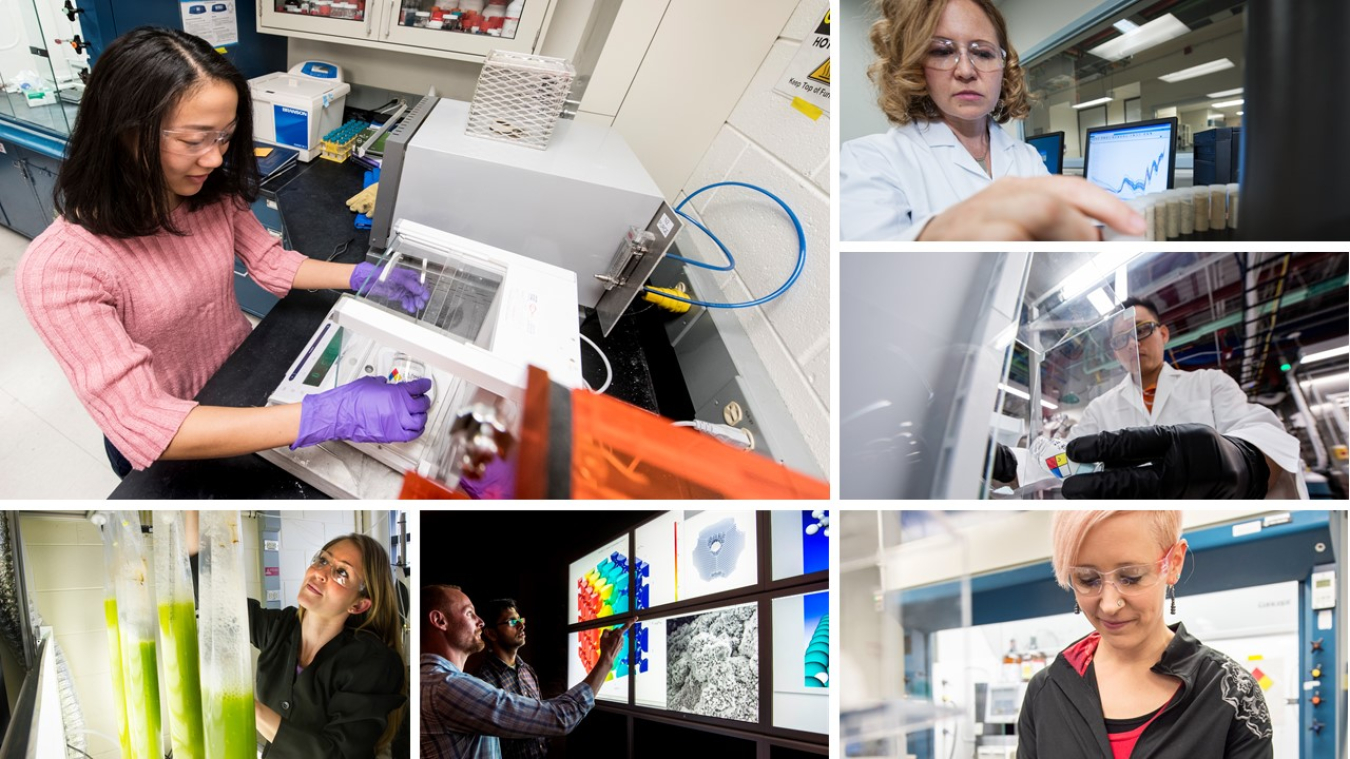Bioprose Blog
Through the Fiscal Year 2021 Small Business Innovation Research (SBIR) and Small Business Technology Transfer (STTR) program, the Bioenergy Technologies Office (BETO) will advance its mission to help transform the Nation's renewable and abundant biomass resources into cost-competitive, high-performance biofuels, bioproducts, and biopower by soliciting applications focused on broadening participation. Bioenergy feedstock development and deployment can benefit people across the United States by supporting economic growth and environmental quality.

Members of the bioeconomy workforce. Photos by Dennis Schroeder / National Renewable Energy Laboratory
With these SBIR/STTR topics, BETO aims to direct research and development (R&D) resources to address challenges influencing access to bioenergy R&D and thereby increase the representation of those who participate in and benefit from the bioeconomy.
BETO encourages applications from:
- Bioenergy small businesses
- Local-level organizations
- Science, Technology, Engineering, and Math (STEM) and R&D consultancies that qualify as small businesses.
The first topic, “Small Business Bioenergy Technologies Increasing Community Partnerships,” encourages submission of innovative research proposals from bioenergy small businesses to develop a community-scale preliminary design package of their products and/or processes. It also requires engagement from community stakeholders to assess desirability and feasibility of the small business’ proposed design.
The main objective of a Phase I award is to develop a preliminary design package of a small business’ technology, product, or process deployed at the community scale and derived from stakeholder input. In Phase I, the majority of research emphasis is placed on evaluating and testing unknowns of integrating the technology with specific stakeholder group(s) rather than on developing a new technology. Some unknowns include technology performance parameters to better support the local economy and market of the technology. Phase II of this topic involves deployment of the proposed technology into the community at a pilot scale.
The second topic, “Cultivating a More Competitive Bioeconomy through Strengthening Small Business Workforces” solicits proposals that pilot a research-driven workforce development program or tool that can be widely applicable for the bioeconomy, establishing a partnership with business experts in bioenergy and/or inclusive workforce development. Desired outcomes of this topic include:
- Scalable mechanisms, platforms, and technologies for increasing recruitment of trained professionals with parallel skills from job sectors that have declined domestically
- Retention from underrepresented backgrounds in STEM and/or leadership positions.
Phase I of this topic includes completion of research and beta-testing of the workforce development program or tool. Phase II includes the deployment of this technology at the bioeconomy business and scaling the tool to other businesses.
Guidelines and important dates:
- Applicants must submit a Letter of Intent in order to be eligible to submit a full application
- Letters of Intent are due Monday, January 4, 2021 at 5:00pm ET
- Full applications are due Monday, February 22, 2021 at 11:59pm ET
- Award notifications are projected to be announced on May 17, 2021.
BETO will host a one hour webinar on Monday, December 7, 2020 12:00 pm EST where applicants can learn more about the topics and the application process. Potential applicants can also contact BETO Topic Manager Devinn Lambert with questions.
On December 18, 2020, the SBIR Office will present a webinar that outlines the process for submitting an SBIR/STTR application.
For more information about these topics and the SBIR/STTR program, please review the following links:


